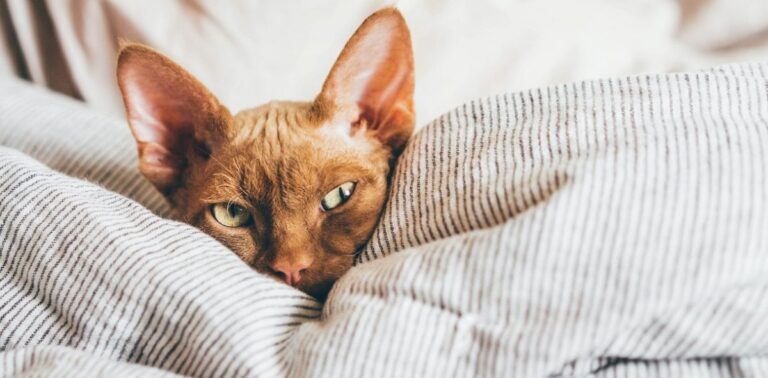If you share your home with a cat, you’re probably all too familiar with the rude awakening of a paw tapping your face or a meow echoing through the hallway just as the sun begins to rise. It’s a common scenario for cat owners, but what’s behind this early morning wake-up call?
The Natural Instincts of Cats: Nighttime Predators
To understand why your furry friend is so active at dawn, we must delve into their ancestral behaviors. In the wild, cats are predominantly nocturnal or crepuscular (active at dawn and dusk), hunting their prey during these times when it’s easier to sneak up on a meal. This ingrained behavior doesn’t vanish just because they move indoors. Thus, your cat’s morning antics could be a carryover from these ancient routines.
Moreover, cats have excellent night vision and highly developed hearing, giving them a nocturnal edge. So, when they’re up and about at dawn, it’s not just to disturb your sleep; they’re simply following their biological programming.
Feeding Habits: A Demand for Breakfast
Another significant factor is your cat’s feeding schedule. Cats naturally eat small meals frequently throughout the day. If the first thing you do in the morning is feed your cat, they’ll quickly learn to associate your waking up with mealtime. It’s not just hunger— it’s anticipation. They remember that breakfast comes after those annoying alarms that you keep hitting snooze on.
Circadian Rhythms: Living on Cat Time
Cats have their own circadian rhythms, which can slightly differ from human schedules. While we’re programmed to rest at night, cats might be programmed for activity. This misalignment can explain why your cat is energetically pacing the bedroom when you’re trying to catch those last moments of sleep.
Feline Psychology: A Cry for Attention
Lastly, don’t underestimate your cat’s need for attention. While cats often appear independent, they do seek social interaction and affection. Morning might be the time your cat feels most energetic and ready to engage with you, especially if that’s when you have previously made time for play and cuddles. Your morning alarm might just signal the start of their favorite part of the day — spending time with you.
What Can You Do?
Understanding that your cat’s morning behavior is a blend of instinct, hunger, and social needs can help you find strategies to manage their dawn patrol activities. You might consider an automatic feeder to satisfy their early hunger or setting aside a few minutes to play after you wake up to satisfy their need for attention and help reset their body clock.
So, the next time your cat wakes you at the crack of dawn, instead of asking “why,” think about what they’re trying to communicate. It’s not just a simple wake-up call — it’s a complex mix of instinct, need, and affection.






